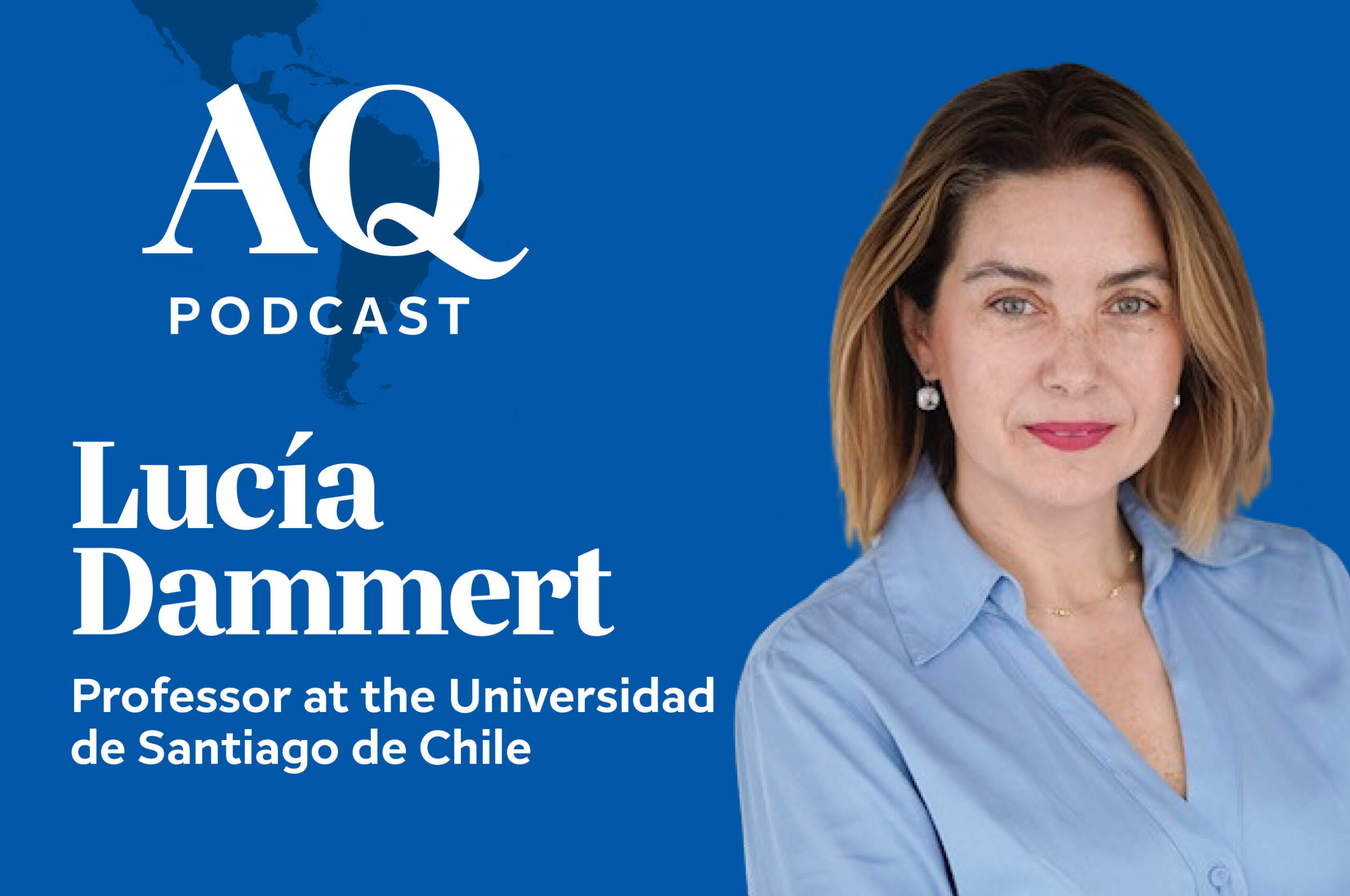The images coming out of Ecuador in the past week were just the latest reminder of the extraordinary power of drug cartels in Latin America. Despite efforts by many governments, the production of cocaine in the region continues to soar, and criminal groups have diversified their practices. In this episode, a look at how leaders around Latin America are responding to this crisis. We’ll discuss whether legalization of some drugs might be politically viable and how drug violence is likely to impact politics in years to come. Our guest is Lucía Dammert, a researcher in the fields of security, criminal organizations and criminal justice reform. Dammert was a presidential adviser to Chile’s Gabriel Boric and has also advised governments in Argentina, México and Perú. She’s currently a Professor at the Universidad de Santiago de Chile.
Subscribe to the Americas Quarterly Podcast on Apple, Spotify and other platforms
On this episode:
Lucía Dammert is a Professor at the Universidad de Santiago de Chile.
Brian Winter is the editor-in-chief of Americas Quarterly.
If you’d like to know more:
Quiet Quitting the War on Drugs by Brian Winter
When Politics and Crime Collided in Peru by Lucía Dammert
Ecuador’s Crisis: A Long Road Ahead by Sebastián Hurtado
Ecuador’s Crime Wave and Its Albanian Connection by Carolina Andrade, Mac Margolis and Robert Mugah
Behind a Rise in Latin America’s Violent Crime, A Deadly Flow of Illegal Guns by Carina Solmirano
As Concern Over Crime Rises, Chile’s Boric Shifts Right by Nicolás Saldías
AQ Podcast: How Organized Crime Is Changing In Latin America



